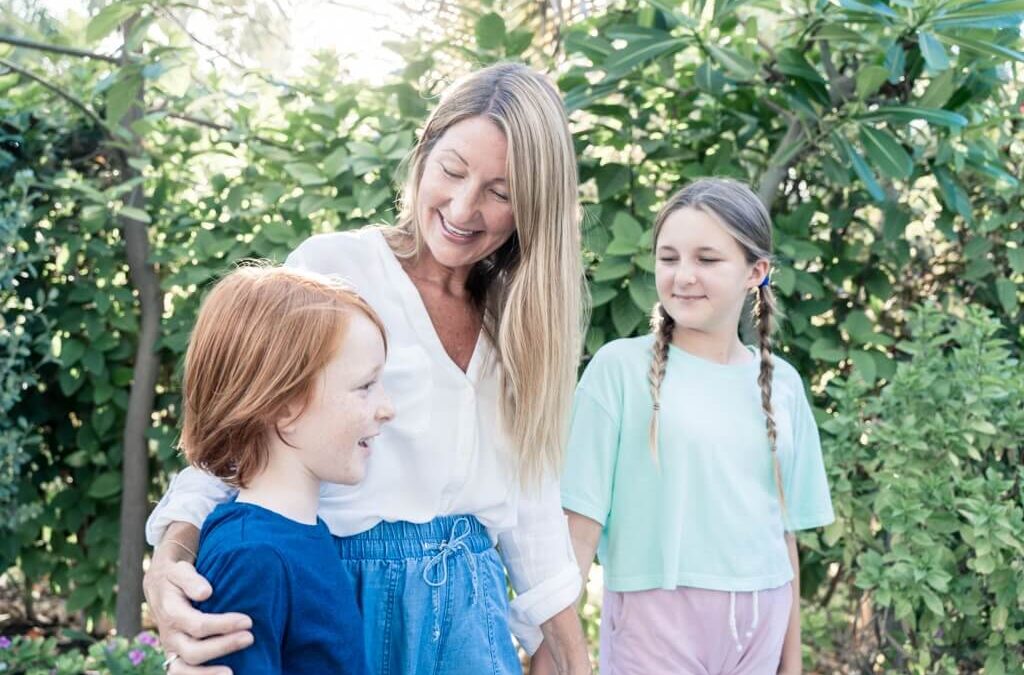5 Questions to Improve After-School Conversation
“How was your day?”
“Fine.”
“What did you do?”
“Nothing.”

Sound familiar?
As parents of young children, we naturally want to know about their experiences when they are away from us, especially at school. However, often parents struggle to draw details out in conversation, leaving them frustrated and sometimes worried about the lack of information on their child’s school life.
As adults, “How was your day?” seems like a reasonable and simple question to answer. Young children however, especially those still developing their vocabulary and conversation skills, may struggle to sift through the day and verbalise these experiences.
The following questions will help your child to focus on specific parts of the day, guiding them through their experiences and giving them the opportunity to share their thoughts and feelings.
1. What was the best part of your day?
Encouraging your child to think of what went well supports them in identifying instances of joy and success, increasing the levels of dopamine in their brains and making them feel happy. By focusing on the best part of the day, you’re helping your child train their brain to seek the positives, enhancing their capacity for gratitude and boosting their overall mood.
2. What was the worst part of your day?
Whilst being grateful for what went well is an important starting point, discussing the negatives is also valuable. Sometimes children don’t know how to explain upsetting or difficult situations without guidance, and won’t necessarily offer the information in answer to “How are you?” By focusing on what your child specifically didn’t like or struggled with, you open the door for them to reflect and evaluate on how or why it happened, problem solve if necessary, and move on from the experience with your support.
3. What happened that made you laugh today?
This question helps you to experience the intricacies of your child’s social world, giving you a glimpse of their friends, their conversations and what they find funny.This becomes more valuable as our children get older, when their daily life is less tightly bound to ours than when they were small. There’s no better feeling than seeing your child smile, so give yourself the gift of this question and enjoy the opportunity to share the laughs together.
4. What mistakes did you make?
We probably all have past childhood experiences of mistakes being seen as “bad”, whether that was from our own parents, teachers or other children, however we now know that mistakes are the very things that help us to learn and grow. Perhaps your child made an error on their work, or said something they shouldn’t have to a friend. Whatever size or seriousness of the mistake, supporting your child to unpick why it happened helps them to evaluate their actions, take ownership of what’s in their control, and hopefully emerge on the other side with a solution or learning opportunity.
5. Did anyone help you with anything today? Who did you help?
As parents, we’re as interested in our child’s social development as we are their academic achievements, and this question shows you how your child relates to their peers on an interpersonal level. Discussing instances where somebody helped them enables your child to identify people who can be relied upon. Talking about how they also support others encourages them to look outside of themselves, and consider their role within a community. The act of being helpful is universal, and even very young children are able to comment on it with the right questions.
Research shows that if we evaluate the end of the day positively, we feel the whole day has gone well. Even on the most challenging days, ending it with positive and thoughtful conversation can be just what your child needs to feel connected to both their experiences and to you.
Do you want to learn more about effective communication with your child? Follow the social media pages below to find out about upcoming workshops, seminars and events, or head to the Parent Page to see my coaching packages and programmes.

